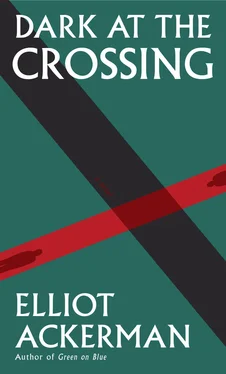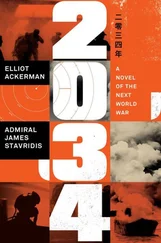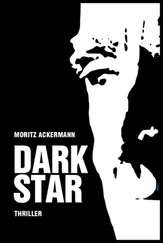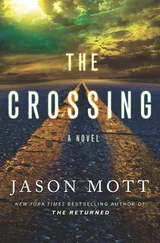“Can we go home?” Amir asked Daphne.
She turned to him, closing the heavy lids of her eyes. “Yes,” she said, “I want to go home, but not to that apartment. If I can’t return to our old home, to where we lost Kifa, I just want to sit here.”
“Daph, we can’t sit forever,” said Amir. “I’m parked out front, come on.”
Amir slowly stood, but Daphne remained perched on her stool.
“Why do you think I wanted to meet here?” she said. “I can’t be stuck in that apartment right now.”
“Be practical,” pleaded Amir.
“If I come, I’ll walk.”
“It’s halfway across the city.”
“I can walk with her,” Haris interrupted.
“Just go!” Daphne snapped at them. “I’ll walk alone.”
Amir fixed his eyes on Daphne for a moment longer and then headed out the door, to their Peugeot parked by the curb. Turning away from her, Haris followed Amir, taking Saied’s Nokia with him.
As they drove along Paşa Bulvari, the streetlights were poised against the incoming night. The traffic had thinned since the afternoon, but was still crawling. Then, without warning, a single gust formed a heavy, dirty sky above them. A downpour slashed against their car, forcing the traffic around them to a standstill. Both Haris and Amir sat, blinded by the storm.
The Peugeot’s wipers stammered across the windshield. The rain emptied the sidewalks, and discarded umbrellas littered the overflowing gutters. Shopkeepers shuttered their stores, cutting their losses with the storm. Taillights shone red, snaking the way home. Headlights shone white, catching the rain like television static. Shadows filled the inside of the Peugeot, falling against Haris’s and Amir’s drawn expressions, and the sound of idling traffic blended with the weather into a single hum.
For most of the journey neither spoke. It required too much effort to raise their voices above the storm. Amir hunched over the steering wheel, a cigarette burning between his fingers. Haris searched the glove box for a charger or battery for Saied’s phone but found nothing. After nearly an hour, they remained in the gridlock. Up the road, at the turn onto Yusuf Bulvari, taillights and headlights mixed in a directionless mess.
Haris and Amir both came forward in their seats, craning their necks toward the scene ahead. Merging with the flashing traffic, a pair of lights strobed — a police car. They each leaned back, imagining an accident and further imagining how much longer it would take them to get to the apartment. Before either could complain, a slow clopping broke through the rain. They looked behind them, but the streaked rear windshield blocked their view. The clopping came closer and closer, becoming louder than the storm. Amir rolled down his window, holding his face to the rain to catch a glimpse.
An old man on a donkey plodded past. Sandwiched between the inbound and outbound traffic, the animal’s flank pressed against the Peugeot’s side. With the window down, a wet barnyard smell wafted into the car. Straddling the donkey’s bare back, the old man clutched a loop of hemp reins. He wore trash bags over his clothes. In the seams of the bags rain pooled, so that when he moved his body, even a little, water spilled off him. Quickly, the old man and donkey made their way through the traffic. The Peugeot’s headlights shone against them. Haris noticed the donkey’s tail. It was so wet and heavy that it didn’t swing from side to side but seemed to drag almost on the ground.
“If he’d stopped,” said Amir, his voice raised against the storm, “I would’ve traded him the Peugeot for the donkey.”
“Seems fair,” answered Haris. “Where would you keep it?”
“In the kitchen,” said Amir, laughing a bit. “I think we could fit a donkey in there.”
“Is Daphne an animal lover?”
Amir gazed intently into the rain. “How is she going to get home in this?”
Amir’s concern gave voice to Haris’s. If either thought there was a chance Daphne would come with them, they would’ve turned the car around and fought through traffic in both directions to get her. There wasn’t a chance. They both knew it. Bound by that rejection, they traveled together.
Up ahead, they watched as the donkey and old man took the turn onto Yusuf Bulvari, ambling past the accident and the police car with its flashing lights. “Look,” said Amir. “They’re even heading our way.” Behind them, someone honked a horn. Several others followed. Up and down the line of traffic, everyone honked in unison. Then the noise of the rain and the idling engines returned. “Do you know the story of Cause the donkey?” asked Amir, lighting a cigarette.
“A donkey named Cause?” said Haris. “No, never heard that one.”
“I used to tell it to Daphne. The donkey, you see, belonged to an old political activist — hence its name — an elderly farmer with a pistachio crop outside Shamer, near my grandfather’s farm. The man’s grandson lived with him, his parents having been killed during the French Mandate. One summer, the marketplace in Shamer began selling a new type of tractor that was far cheaper to maintain than a donkey, so the farmer and the boy journeyed there to sell Cause. With the boy mounted on Cause’s back, the three had traveled about a mile down a dirt road — their total journey to the marketplace being about four miles — when one of the wealthy landowners pulled alongside them in an elegant black Mercedes. He stopped next to Cause and cracked his window, shouting at the boy: ‘For shame! Get off that donkey! Let the man who’s given you all he has ride for a change.’ Then, before the boy could answer, the landowner rolled up his window and sped off. The three stood in the road, choking on dust from the Mercedes.
“Worried they might see this great landowner again, the boy dismounted and the old man rode. They continued the next mile down the road until they came upon another farmer, a bitter man whose crops had failed the last three seasons. He snatched Cause’s reins by the halter. ‘Despicable old man,’ he snapped. ‘The boy’s parents died fighting injustice and you force him to walk as if you were al-Assad, the president himself.’ Not wanting any trouble, the old man dismounted. He and his grandson stood with their donkey, perplexed, unsure how they should proceed. Suddenly, the boy became inspired: ‘Grandfather, Grandfather,’ he said, ‘we can both ride Cause.’ The boy’s grandfather appreciated the quickness of his grandson’s mind. It reminded him of the boy’s parents, who had been killed by the French. The grandfather’s chest swelled with pride as he placed the boy on Cause’s back, mounting behind him.
“Less than a mile from the market, they passed an old woman, and the grandfather called out: ‘Good morning!’ The old woman turned, leaning heavily on the cane she needed to walk. At first she smiled widely, like a sweet grandmother, but before she could offer a greeting, her feeble eyes brought Cause and the two riders into focus. ‘Cruel, heartless men!’ she cried. ‘Both of you riding a weak, aged donkey. Dismount before you kill him or I’ll report you to the authorities once I arrive in Shamer!’ Both grandfather and grandson clumsily dismounted, nearly falling over themselves, their disgrace was so great. ‘Always there is something wrong,’ grumbled the old man as they continued, overtaking the woman.
“ ‘Grandfather,’ said the boy, ‘no reason to be upset. We’ve found the way now. We’ll walk beside Cause and everyone will be content.’ No sooner had he said this than a policeman galloped past on a black, thick-chested mare. ‘What’s wrong with you fools?’ said the policeman. ‘What is a donkey for except for riding? Have you walked this whole time?’ Before they could tell him of the difficulties they’d had riding Cause, the policeman galloped off. Heartbroken that no one could understand his simple desire to do right, the grandfather turned to the boy and said: ‘Only one choice is left. We alone must carry Cause, then no one can speak ill of us.’ The boy told his grandfather: ‘Cause may not accept being carried by us.’ The old man disregarded the boy’s warning. ‘He is only a donkey. I can be cruel, too. If he objects, we’ll whip him to silence.’ And they lifted Cause on their backs, although it was a difficult and clumsy way to go.”
Читать дальше












